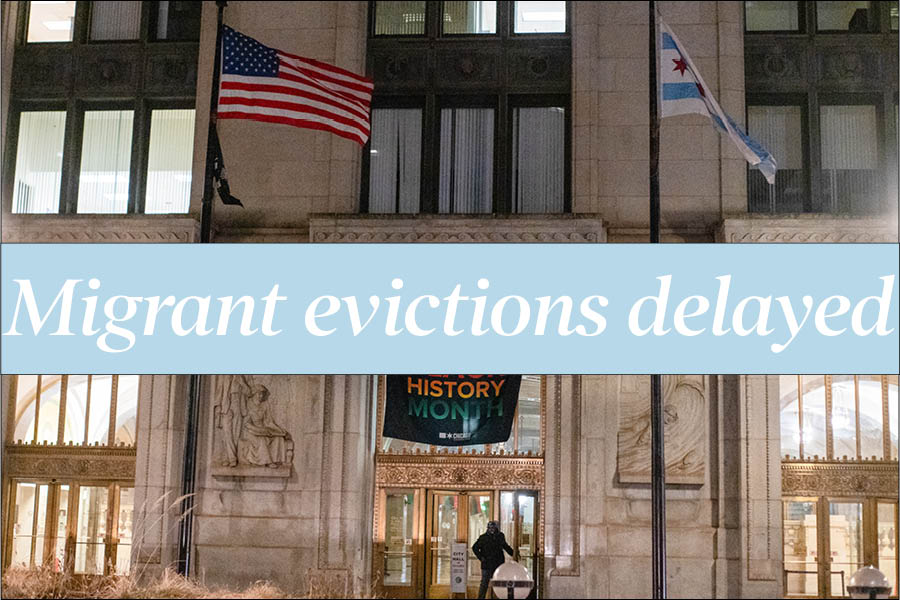Thousands of migrants who have arrived in Chicago via buses and planes from other states may be forced out of city shelters in a few weeks, leaving their fate uncertain.
Chicago Mayor Brandon Johnson announced that the new eviction date will be in mid-March, the second extension made to the evictions. The extension was put in place to allow the migrants more time to find housing and to avoid eviction during the harsh winter weather.
“Our plan for emergency temporary shelter was never meant as a long-term housing solution,” Mayor Johnson announced at a Jan. 29 news conference. “But we want to give every person and every single family that has come to our city enough time to process their work authorization, find housing, start a new life in our great city.”
The city has provided 28 shelters to more than 13,000 migrants over the past eight months. Michael Rodriguez, Ward 22 Alderperson and member of the Chicago Committee of Immigrant and Refugee Rights, understands why the Mayor made this difficult choice and is glad.
“Eviction is absolutely not ideal,” Ald. Rodriguez said in an interview with the Midway. “Eviction could lead to destabilization of families. It could increase the population of individuals living on the streets in the city of Chicago.”
Jessie Fuentes, Ward 26 Alderperson and another committee member, feels the same.
“I think it’s the most humane thing that we could have done as a city,” Ald. Fuentes said in an interview with the Midway.
Ald. Rodriguez views migrants coming to the city as an opportunity rather than a crisis.
“It’s a migrant opportunity,” Ald. Rodriguez said. “Our country needs migrants, and young migrants, to come to this country to do jobs, some of which many others would not do — and to help uplift us all.”
However, it is difficult to take advantage of this opportunity when it is being executed in the wrong way.
“Migrants are coming to our city, and that’s being done through no coordination with the governors in Texas or Florida,” Ald. Rodriguez said. “They’re putting them on buses with no home to live in. That’s cruel.”
Ald. Fuentes acknowledges how the city of Chicago is trying their best to accommodate these unfortunate conditions.
“What we want to do is to be able to provide the best conditions in what is not the most ideal circumstance,” Ald. Fuentes said.
The Committee of Immigrant and Refugee Rights has been working on the best way to handle the situation.
“There have been subject matter hearings on the current conditions and what the city is planning to improve those conditions as well as taking feedback from the alderpeople,” Ald. Fuentes said. “I believe that it is that collaborative process that’s going to get us in the best place possible.”
The most ideal and simple solution lies in helping the migrants settle.
“We’ve got to do a better job of out-migration and getting people into regular functioning within our society,” Ald. Rodriguez said.
However, this becomes difficult when many of the migrants cannot work legally.
“It’s up to landlords in Chicago to accept these vouchers, knowing that there won’t be a deposit, knowing that it’s difficult for our migrants to find jobs legally,” Arcelia Guerrero Wolfe, a Lab parent and admissions office associate, said. “That’s a big push. It’s a difficult situation.”
Along with doing other volunteer work to help the migrants, Ms. Guerrero collects donations for the migrants through the University of Chicago and Lab. She is currently organizing a warehouse full of these donations until March 31.
“They need clothes. They’re in Chicago,” Ms. Guerrero said. “They’re from Venezuela, Colombia, wherever. It’s cold here. They’re not used to the cold and they need warm clothes.”
While many changes need to be made to adequately provide for the migrants in Chicago, donating is a small but necessary part of helping the situation.





















































